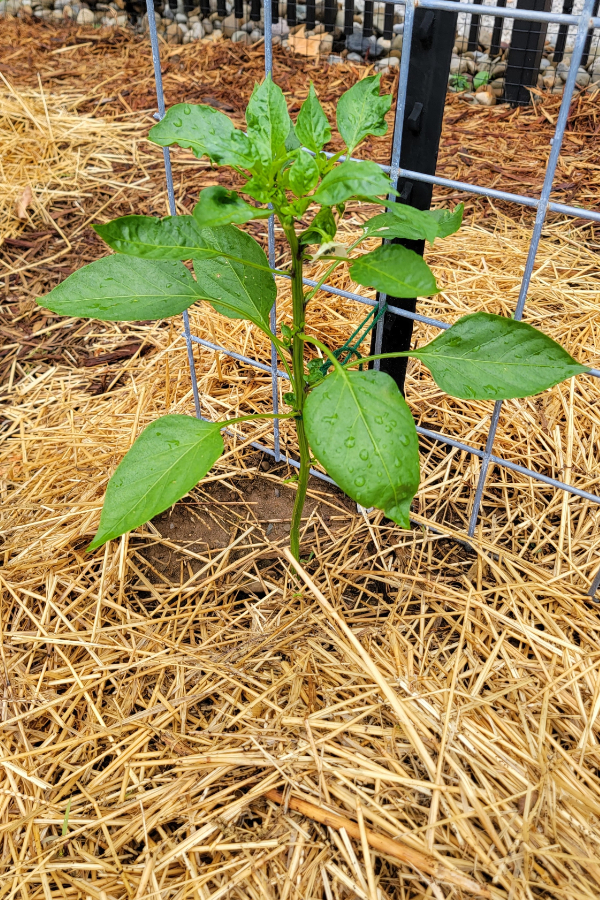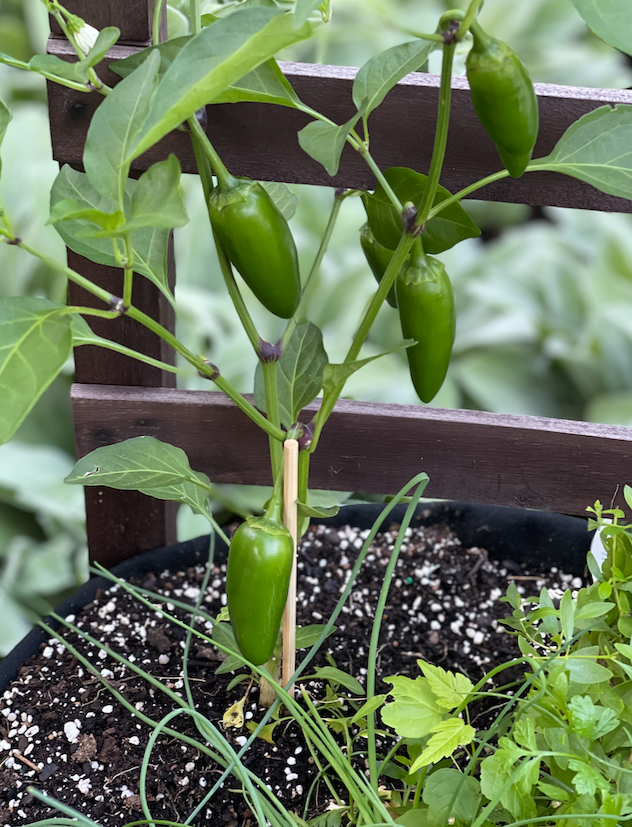Explore the Best Fertilizers for Peppers and Enhance Your Garden's Yield
Explore the Best Fertilizers for Peppers and Enhance Your Garden's Yield
Blog Article
The Perks and Techniques of Using Fertilizers for Peppers in Your Garden
The advantages of making use of plant foods for peppers expand past mere plant development; they play a crucial function in enhancing fruit manufacturing and overall plant wellness. Understanding the details needs of pepper plants and picking the best fertilizer can be a game-changer in your gardening trip. By discovering the methods of correct plant food application and developing a timetable customized to your pepper plants, you can unlock their full potential.
Significance of Fertilizers for Peppers
Fertilizers play a critical role in making certain the optimal development and performance of pepper plants in a garden setup. The key nutrients required by pepper plants are phosphorus, nitrogen, and potassium.
When peppers do not have these vital nutrients, they might exhibit stunted development, yellowing fallen leaves, lowered blooming, and bad fruit set. By giving the appropriate plant foods in the right amounts, gardeners can deal with these shortages and promote healthy plant growth. In addition, fertilizers help pepper plants hold up against environmental stress factors such as severe temperature levels, parasites, and conditions, enabling them to concentrate their power on growth and fruit manufacturing.
Choosing the suitable fertilizer formulation, whether natural or artificial, and adhering to appropriate application techniques are vital consider making the most of the advantages of plant foods for pepper plants in a garden setup. Routine dirt screening can likewise help identify any type of nutrient inequalities and overview garden enthusiasts in creating a customized fertilization strategy customized to the certain demands of their pepper plants.
Picking the Right Fertilizer
Selecting the suitable fertilizer for pepper plants is essential for guaranteeing their optimal development and productivity in a garden setting. When picking a fertilizer for peppers, it is very important to consider the certain nutrient requirements of these plants. Peppers are heavy feeders, specifically needing appropriate quantities of phosphorus, nitrogen, and potassium. As a result, a plant food with a balanced NPK proportion, such as 10-10-10 or 20-20-20, can be appropriate for peppers.

Before using any kind of plant food, it is necessary to carry out a soil test to identify the existing nutrient levels in the soil. This information can direct you in selecting the ideal plant food and producing a personalized fertilization plan for your pepper plants, advertising healthy development and abundant returns.
Application Methods for Maximum Results
When applying fertilizers to pepper plants, it is important to comply with specific methods to make sure that the nutrients are properly absorbed and used by the plants. One important method is to apply the fertilizer evenly around the base of the plants, guaranteeing that it is not concentrated in one area.
One more essential application strategy is to sprinkle the plants extensively after applying the fertilizer. This assists to liquify the nutrients and carry them to the origins where they are required for development. Furthermore, it is recommended to use fertilizers throughout the cooler parts of the day, such as morning or late evening, to prevent evaporation and make the most of absorption.
Additionally, frequently monitoring the plants for any indicators of nutrient deficiency or excess can assist in readjusting the plant food application as necessary. By using these key application strategies, you can make certain that your pepper plants receive the essential nutrients for healthy growth and bountiful yields.
Fertilizer Schedule for Pepper Plants
When should pepper plants be fertilized to guarantee optimal growth and performance in your garden? Developing a well-structured plant food schedule redirected here is critical for the healthy growth of pepper plants - best fertilizers for peppers. Peppers have details nutritional needs that vary throughout their growth phases

As the pepper plants start blooming, switch to a phosphorus-heavy plant food to advertise durable blossom and fruit development. Potassium-rich fertilizers must be presented throughout the fruiting phase to improve fruit quality and return.
Throughout the expanding period, keep track of the plants for any type of signs of nutrient deficiencies and adjust the plant food schedule accordingly. directory Bear in mind to sprinkle the plants deeply after each fertilization to aid in nutrient absorption. By following a consistent and well-tailored fertilizer schedule, you can guarantee vigorous growth and abundant harvests from your pepper plants.

Tips for Fertilizing Peppers Efficiently
Successfully feeding peppers requires not just recognizing their particular nutrient needs throughout different development stages, as discussed earlier, yet also carrying out functional strategies to optimize nutrient uptake and use. One vital idea is to carry out a dirt test before applying any plant foods to figure out the existing nutrient degrees. This helps in customizing the plant food application to satisfy the particular requirements of the pepper plants. It is suggested to utilize a well balanced plant food with a ratio such as 10-10-10 or 20-20-20 to guarantee peppers obtain a mix of vital nutrients. Using fertilizers in the right amount and at the correct time is critical. It is usually recommended to fertilize peppers lightly however often throughout the expanding period. Over-fertilizing can lead to nutrient discrepancies and create injury to the plants. Furthermore, sprinkling the plants before and after fertilizing helps in the effective absorption of nutrients. Integrating organic matter into the soil can improve its nutrient-holding capability, helping in the long-term health and wellness of pepper plants.
Verdict
To conclude, fertilizers play a critical role in the development and growth of pepper plants in your yard. By choosing the suitable fertilizer and using it properly, you can guarantee your peppers obtain the required nutrients for optimum growth. best fertilizers for peppers. Following a consistent plant food timetable and implementing reliable strategies will certainly aid make best use of the advantages of fertilizers for your pepper plants, leading to healthy and balanced and productive plants
The advantages of utilizing plant foods for peppers extend past simple plant growth; they play an important duty in improving fruit production and total plant wellness.Plant foods play a critical role in making certain the optimal growth and performance of pepper plants in a yard setting. When choosing a fertilizer for peppers, it is vital to take into consideration the certain nutrient requirements of Check This Out these plants. When applying plant foods to pepper plants, it is essential to comply with particular techniques to make sure that the nutrients are successfully taken in and utilized by the plants. Complying with a consistent plant food timetable and carrying out reliable methods will help take full advantage of the benefits of plant foods for your pepper plants, resulting in productive and healthy plants.
Report this page